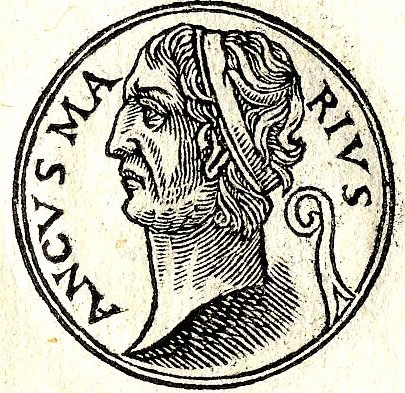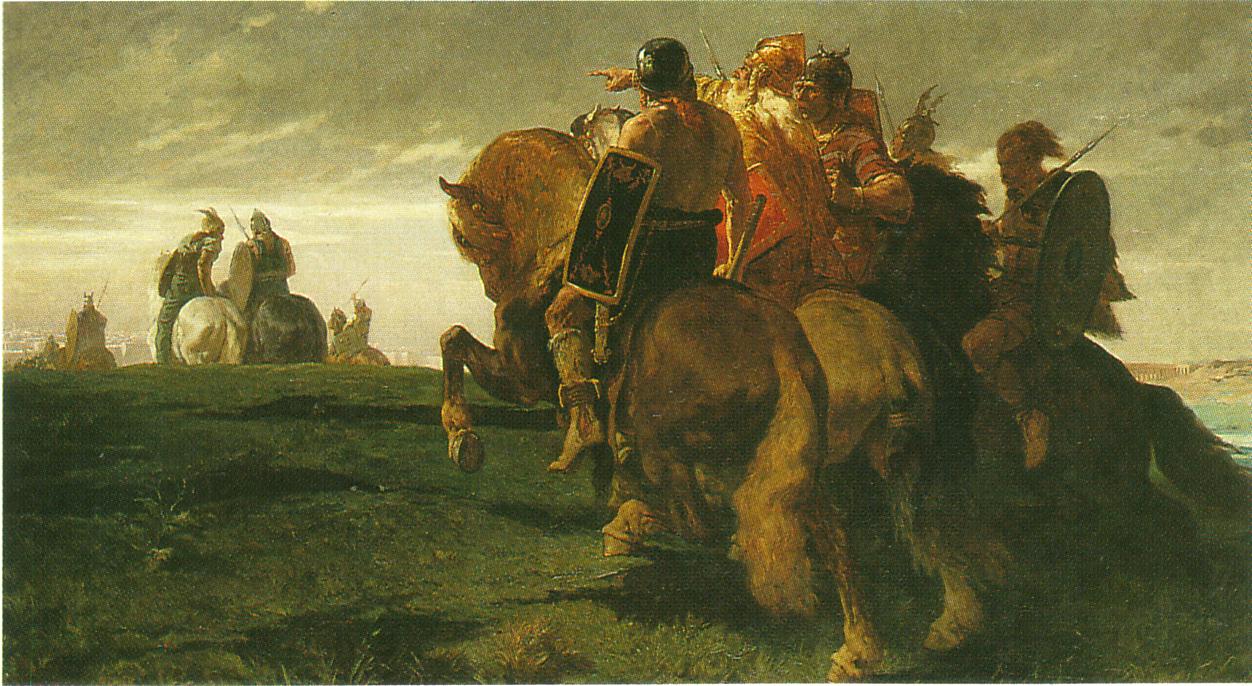|
Si Deus Si Dea
is an Archaic Latin phrase meaning "whether god or goddess". It was used to address a deity of unknown gender. It was also written , , or ("whether male or female"). The phrase can be found on several ancient monuments. Archaic Roman inscriptions such as this may have been written to protect the identity of the god if Rome were captured by an enemy.Description of the Altar to the Unknown Divinity, found at the Palatine Hill Museum. The construction was often used when invoking the god of a place (e.g., "Be you god or goddess who reigns over Carthage, grant us..."). The classical scholar Edward Courtney claimed it was "intended to cover all bases as an acknowledgement of the limitations of human knowledge about divine powers". Monuments Altar to the Unknown God In 1820, an altar was discovered on the Palatine Hill with an Old Latin inscription: which can be transliterated into the modern form as: and translated as: The altar is regarded as a late Roman Republic rest ... [...More Info...] [...Related Items...] OR: [Wikipedia] [Google] [Baidu] |
Archaic Latin
Old Latin, also known as Early Latin or Archaic Latin (Classical la, prīsca Latīnitās, lit=ancient Latinity), was the Latin language in the period before 75 BC, i.e. before the age of Classical Latin. It descends from a common Proto-Italic language; Latino-Faliscan is likely a separate branch from Osco-Umbrian with possible further relation to other Italic languages and to Celtic; e.g. the Italo-Celtic hypothesis. The use of "old", "early" and "archaic" has been standard in publications of Old Latin writings since at least the 18th century. The definition is not arbitrary, but the terms refer to spelling conventions and word forms not generally found in works written under the Roman Empire. This article presents some of the major differences. The earliest known specimen of Latin seems on the Praeneste fibula. A new analysis done in 2011 declared it to be genuine "beyond any reasonable doubt" and dating from the Orientalizing period, in the first half of the seventh century ... [...More Info...] [...Related Items...] OR: [Wikipedia] [Google] [Baidu] |
Gaius Sextius Calvinus (consul 124 BC)
Gaius Sextius Calvinus was a consul of the Roman Republic in 124 BC. During his consulship, he joined M. Fulvius Flaccus in waging war against the Ligures, Saluvii, and Vocontii in the Mediterranean region of present-day France. He continued as proconsul in Gaul for 123–122. He had held office as praetor no later than 127. Sextius is most noted for giving his name to ''Aquae Sextiae'', "the Baths of Sextius," a site of thermal springs that is in modern-day Aix-en-Provence. There he established a garrison (''castellum'') below the Saluvian oppidum of Entremont. Sextius played a significant role in the military operations, concluded by Domitius Ahenobarbus and Fabius Maximus around 120 BC, that led to the annexation of Transalpine Gaul as a Roman province. He and Fulvius Flaccus were able to create a mile-wide line of communication linking the territory of longtime Roman ally Massilia (present-day Marseilles) to Cisalpine Gaul, already under Roman control. He was given a tr ... [...More Info...] [...Related Items...] OR: [Wikipedia] [Google] [Baidu] |
Latin Religious Words And Phrases
Latin (, or , ) is a classical language belonging to the Italic branch of the Indo-European languages The Indo-European languages are a language family native to the overwhelming majority of Europe, the Iranian plateau, and the northern Indian subcontinent. Some European languages of this family, English, French, Portuguese, Russian, Dutc .... Latin was originally a dialect spoken in the lower Tiber area (then known as Latium) around present-day Rome, but through the power of the Roman Republic it became the dominant language in the Italy (geographical region), Italian region and subsequently throughout the Roman Empire. Even after the Fall of the Western Roman Empire, fall of Western Rome, Latin remained the common language of international communication, science, scholarship and academia in Europe until well into the 18th century, when other regional vernaculars (including its own descendants, the Romance languages) supplanted it in common academic and political u ... [...More Info...] [...Related Items...] OR: [Wikipedia] [Google] [Baidu] |
Ancus Marcius
Ancus Marcius was the legendary fourth king of Rome, who traditionally reigned 24 years. Upon the death of the previous king, Tullus Hostilius, the Roman Senate appointed an interrex, who in turn called a session of the assembly of the people who elected the new king. Ancus is said to have ruled by waging war as Romulus did, while also promoting peace and religion as Numa did. Ancus Marcius was believed by the Romans to have been the namesake of the Marcii, a plebeian family. Background Ancus was the son of Marcius (whose father, also named Marcius, had been a close friend of Numa Pompilius, who may be identified with Numa Marcius, and Pompilia, daughter of Numa Pompilius.Livy, '' Ab Urbe Condita'', 1:32 Ancus Marcius was thus the grandson of Numa and therefore a Sabine. According to Festus, Marcius had the surname of Ancus from his crooked arm (''ancus'' signifying "bent" in Latin). First acts as King According to Livy, Ancus's first act as king was to order the Pontifex Ma ... [...More Info...] [...Related Items...] OR: [Wikipedia] [Google] [Baidu] |
Fetial
A fetial (; la, fētiālis , . la, fētiālēs, label=none) was a type of priest in ancient Rome. They formed a ''collegium'' devoted to Jupiter as the patron of good faith. The duties of the fetials included advising the Senate on foreign affairs and international treaties, making formal proclamations of peace and of war, and confirming treaties. They also carried out the functions of traveling heralds or ambassadors (''Pater Patratus''). The first mention of the fetials by Livy occurs in the context of the war between Alba Longa and Rome, during which the Roman king Tullus Hostilius appointed Marcus Valerius as a fetial and Spurius Fusius as ''pater patratus'', for the purpose of binding Rome and Alba Longa by a treaty. According to Livy, the ritual by which the fetials were to declare war, the ritual of ''rerum repetitio'', was introduced to Rome by Ancus Marcius, borrowing on the traditions of the Aequicolae. However, he had already described the ritual actions of the feti ... [...More Info...] [...Related Items...] OR: [Wikipedia] [Google] [Baidu] |
Livy
Titus Livius (; 59 BC – AD 17), known in English as Livy ( ), was a Ancient Rome, Roman historian. He wrote a monumental history of Rome and the Roman people, titled , covering the period from the earliest legends of Rome before the traditional founding in 753 BC through the reign of Augustus in Livy's own lifetime. He was on familiar terms with members of the Julio-Claudian dynasty and a friend of Augustus, whose young grandnephew, the future emperor Claudius, he exhorted to take up the writing of history. Life Livy was born in Patavium in northern Italy (Roman Empire), Italy, now modern Padua, probably in 59 BC. At the time of his birth, his home city of Patavium was the second wealthiest on the Italian peninsula, and the largest in the province of Cisalpine Gaul (northern Italy). Cisalpine Gaul was merged in Roman Italy, Italy proper during his lifetime and its inhabitants were given Roman citizenship by Julius Caesar. In his works, Livy often expressed his deep affection an ... [...More Info...] [...Related Items...] OR: [Wikipedia] [Google] [Baidu] |
Aequi
300px, Location of the Aequi (Equi) in central Italy, 5th century BC. The Aequi ( grc, Αἴκουοι and Αἴκοι) were an Italic tribe on a stretch of the Apennine Mountains to the east of Latium in central Italy who appear in the early history of ancient Rome. After a long struggle for independence from Rome, they were defeated and substantial Roman colonies were placed on their soil. Only two inscriptions believed to be in the Aequian language remain. No more can be deduced than that the language was Italic. Otherwise, the inscriptions from the region are those of the Latin-speaking colonists in Latin. The colonial exonym documented in these inscriptions is Aequi and also Aequicoli ("colonists of Aequium"). The manuscript variants of the classical authors present Equic-, Aequic-, Aequac-. If the form without the -coli is taken as an original, it may well also be the endonym, but to date further evidence is lacking. Historical geography The historians made many entries co ... [...More Info...] [...Related Items...] OR: [Wikipedia] [Google] [Baidu] |
Julio-Claudian
, native_name_lang=Latin, coat of arms=Great_Cameo_of_France-removebg.png, image_size=260px, caption= The Great Cameo of France depicting emperors Augustus, Tiberius, Claudius and Nero, type=Ancient Roman dynasty, country= Roman Empire, estates=* Imperial Palaces of the Palatine Hill * House of Augustus * Villa of Livia * Gardens of Maecenas * ''Domus Aurea'' * ''Domus Transitoria'' * Villa of Nero * ''Villa Jovis'', parent house=, titles= Roman emperor Pharaoh of Egypt Prince of the Senate Greatest Priest of Rome Father of the Country , styles="Imperator""Caesar""Augustus", founded=, founder=Augustus, final ruler=Nero, other_families=, deposition= (deposed by Galba), ethnicity=Ancient Roman, religion=Roman Religion Imperial cult The Julio-Claudian dynasty comprised the first five Roman emperors: Augustus, Tiberius, Caligula, Claudius, and Nero. This line of emperors ruled the Roman Empire, from its formation (under Augustus, in 27 BC) until the last of the line, emperor Ner ... [...More Info...] [...Related Items...] OR: [Wikipedia] [Google] [Baidu] |
Aius Locutius
Aius Locutius ( lat, āius locūtius, spoken affirmation) or Aius Loquens ( lat, āius loquens, speaking affirmation), was a Roman deity or numen associated with the Gallic invasions of Rome during the early 4th century BC. According to legend, a Roman plebeian named M. Caedicius heard a supernatural, nocturnal voice that issued from Vesta's sacred grove, at the base of the Palatine hill. It warned him of an imminent Gaulish attack, recommended that the walls of Rome be fortified and instructed him to pass these messages on to the tribune of the plebs, but because of the messenger's humble station, the message was ignored. In consequence, the Gauls entered and burned the city (c. 391 BC). Once the Gauls were repelled, the Senate built a temple and altar (known as ''Ara Aius Locutius'' or ''Ara Saepta'') to propitiate the unknown deity who had offered the warning. This was said to have been set up where Caedicius had heard the divine voice. Later Roman historians disputed it ... [...More Info...] [...Related Items...] OR: [Wikipedia] [Google] [Baidu] |
God (male Deity)
Conceptions of God in monotheist, pantheist, and panentheist religions – or of the supreme deity in henotheistic religions – can extend to various levels of abstraction: * as a powerful, personal, supernatural being, or as the deification of an esoteric, mystical or philosophical entity or category; * as the "Ultimate", the '' summum bonum'', the "Absolute Infinite", the " Transcendent", or Existence or Being itself; * as the ground of being, the monistic substrate, that which we cannot understand; and so on. The first recordings that survive of monotheistic conceptions of God, borne out of henotheism and (mostly in Eastern religions) monism, are from the Hellenistic period. Of the many objects and entities that religions and other belief systems across the ages have labeled as divine, the one criterion they share is their acknowledgment as divine by a group or groups of human beings. Hellenistic philosophy and religion Aristotelianism In his ''Metaphysics ... [...More Info...] [...Related Items...] OR: [Wikipedia] [Google] [Baidu] |




